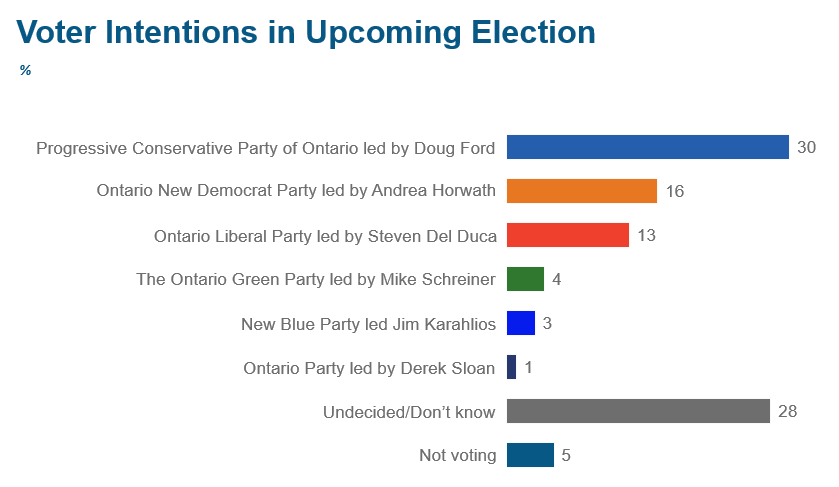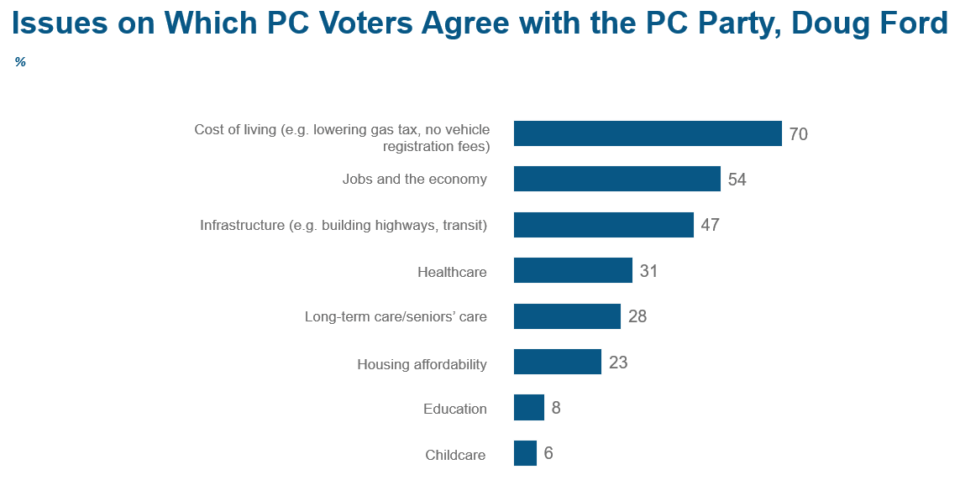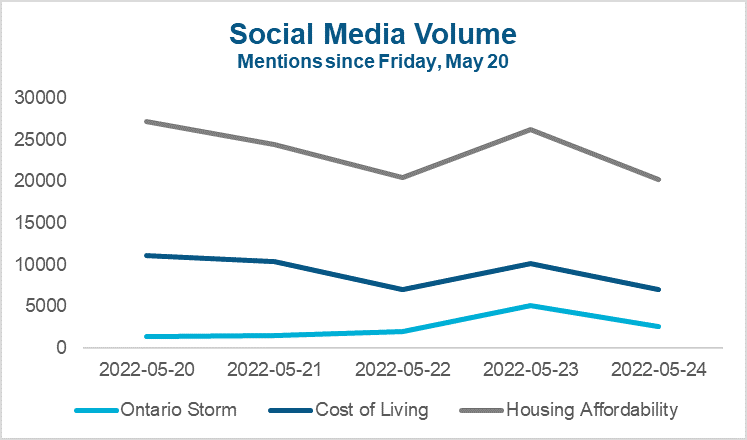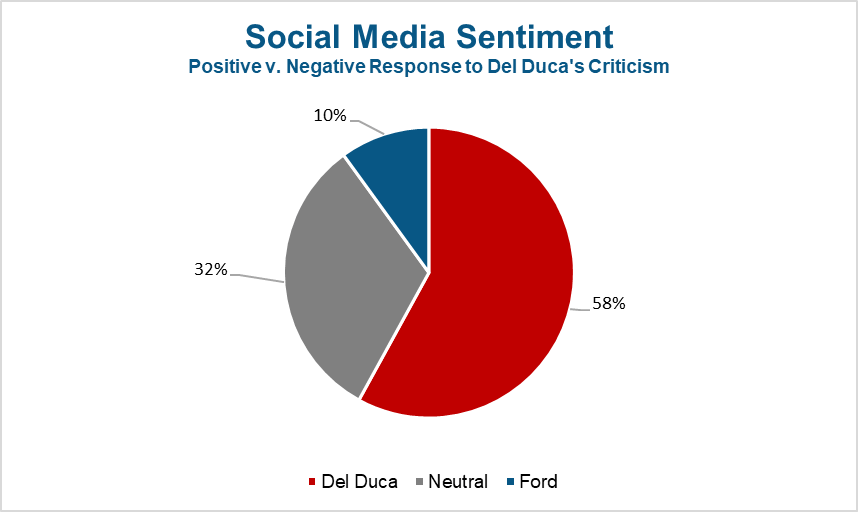Welcome back to the Push Back after the long weekend lull. While everyone was away from their inboxes, we took the opportunity to ask Ontarians what their voting intentions are for the upcoming election. We also looked at the main reasons why PC voters are choosing to vote this way. Let’s take a look.
Polling Results: Voter Intentions
In our survey fielded from May 16-19, 30 per cent of voters said they are voting for the PCs, with the NDP falling 14 points behind in second place. The Liberals lands in a close third place, only three points behind the NDP. Most notably 28 per cent of voters remain undecided on who they intend to vote for with only nine days left in this election.

In our decided vote polling, it showed a greater margin of victory for the PCs at 45 per cent, whereas the NDP trailed at only 23 per cent of the vote.
The PCs continue to have their strongest support amongst male individuals, those earning over $100,00 a year, and voters over the age of 55, with 62 per cent having college, technical or university-level education. Ford’s support is strongest in eastern Ontario (36 per cent) and the Greater Toronto Area (905) (32 per cent), and weakest in downtown Toronto (416) (25 per cent).
Why Ontarians like Ford Nation
The PCs are leading by a sizable margin, with most Ontarians voting PC because they think other political parties would just do a worse job in government. While 18 per cent of PC voters say the main reason they will vote for Doug Ford is because PC policies address issues they care about, only 14 per cent say the main reason for their vote is because they like Ford.
As noted in our previous editions, the cost of living continues to be a top issue for voters. Among PC voters, 70 per cent say the main reason they are voting PC is due to Ford’s policies to address the cost of living. Ford has already announced plans to lower the gas tax and has ended the vehicle registration fees, which appears to be resonating with voters.

Other important reasons for voting PCs include Ford’s policies around job creation and the economy (54 per cent) – a traditional area of strength for conservatives – and his support for building more infrastructure, including highways and transit (47 per cent).
Weathering the Storm
Over the weekend, a deadly storm swept through the province resulting in 10 casualties and leaving thousands without power, especially in eastern Ontario. On Sunday, Ontario Liberal Leader Steven Del Duca latched onto the natural disaster. Del Duca announced the suspension of his campaign in order to visit areas of Eastern Ontario which were hard hit by the storm. At a press conference, he openly criticized the Premier’s alleged absence from storm-hit areas.
Meanwhile, during an unannounced visit to Uxbridge to survey the damage, Ford stated that his top priority is to restore power across the region after the storm severely damaged hydro infrastructure and properties.
While some Ottawa and GTA residents criticized the Premier’s absence, others pushed back on Del Duca for politicizing a tragedy saying that he was continuing to campaign in Ottawa using a natural disaster to attack the Premier at a time when leaders should be coming together.
So, how did Del Duca’s attack play with Ontario voters?
Social Media Analysis
While politicizing a natural disaster may have played well in party war rooms, the issue got minimal traction with Ontario voters. Even at the height of coverage on Saturday, Del Duca’s criticism of Doug Ford was the subject of less than 13,000 social media posts, compared to 45,000 posts discussing the cost of living and inflation and more than 118,000 posts about housing affordability. We would preface these observations by noting there were widespread power outages and Ontarians may have also been taking a social media break due to the long weekend.

Negative v. Positive
Among those who were paying attention to the incident, many residents in eastern Ontario sided with Del Duca in asking why Ford was not prioritizing the hardest-hit region of the province. In total, 58 per cent of tweets sided with Del Duca in criticizing Ford, while 10 per cent of tweets sided with Ford and accused Del Duca of politicizing the incident.
The most prolific social media posts came directly from PC and Liberal candidates and their staff. Posts from candidates were excluded from the sentiment chart below.

Push Back Verdict – Swing and Miss
We would characterize this incident as a “swing and miss.” While Liberal staff were anxious to jump on Doug Ford’s absence, voters seemed more concerned with pocketbook issues of inflation and housing affordability. While social media posts largely sided with Del Duca on the incident, those posting were already some of the most highly engaged Liberal supporters and were unlikely to vote for Ford in the first place. The online conversation (or lack thereof) suggests that politicizing a natural disaster does not make for good politics.
Have any questions about the news out of Queen’s Park this week? Please reach out to our political experts at info@navltd.com.

